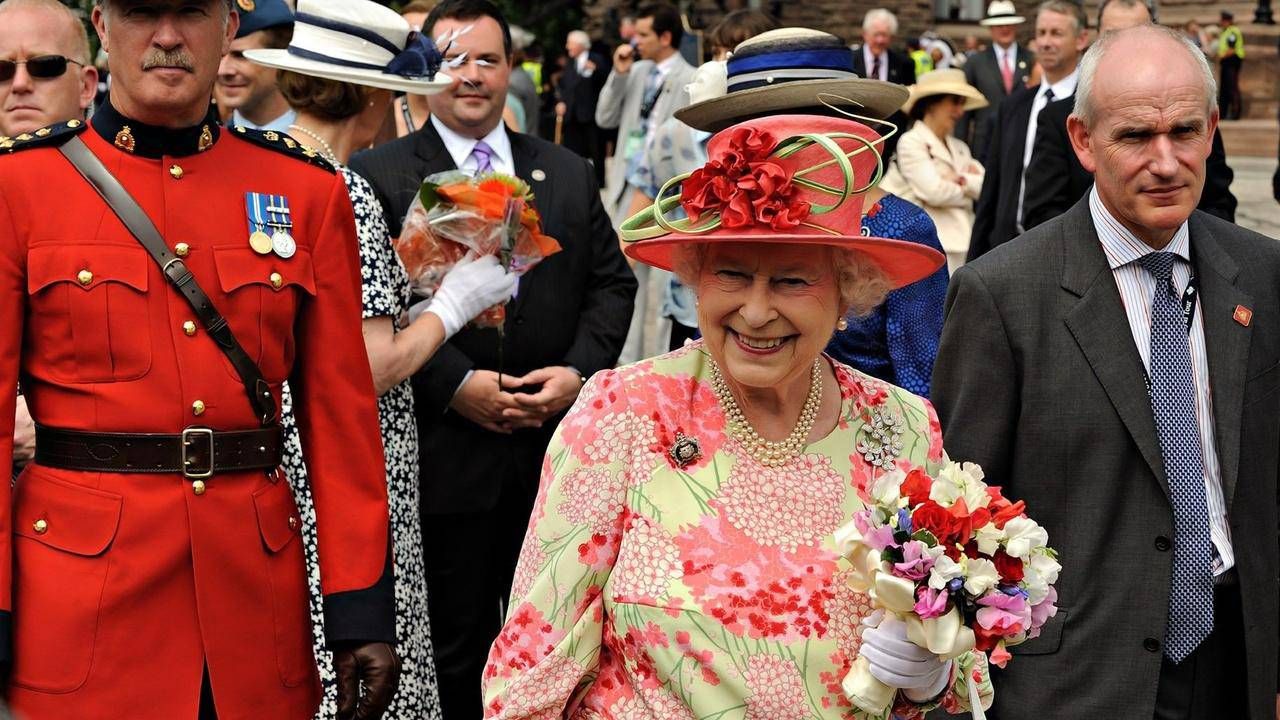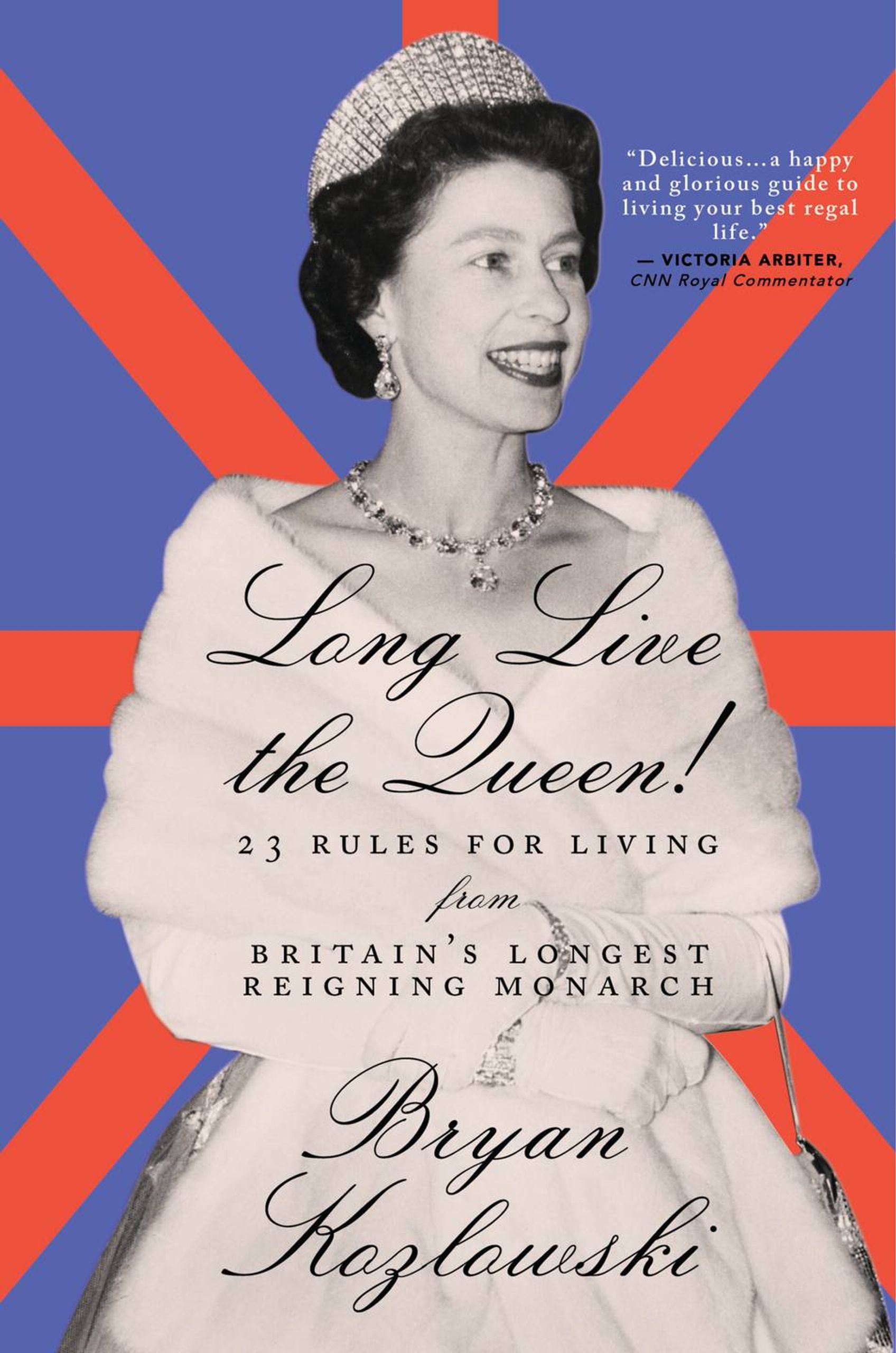Reflecting on the Best Practices of Queen Elizabeth
The savvy and healthy habits that allowed the Queen to reign supreme for so many years
Editor’s note: Queen Elizabeth II died on September 8, 2022 at the age of 96. This story was originally published on Next Avenue in 2020.
One of the most famous people in the world, Queen Elizabeth II has lived in the spotlight for almost her entire life, and this year she marks a remarkable 70 years as England's monarch. Generations have been fascinated by the trials and tribulations of the Royal Family; multiple books have been written about them and about her and she's been portrayed onscreen by Helen Mirren and most recently, by Claire Foy and Olivia Colman in "The Crown."

Although the pandemic has kept Queen Elizabeth, now 96, out of public view more than in the past (she was spotted out for the first time in October and again in November, where she wore a mask), she continues to fulfill her royal duties, even observing the unveiling of a new portrait via Zoom.
Author Bryan Kozlowski has written a new book, "Long Live the Queen: 23 Rules for Living from Britain's Longest Reigning Monarch," which examines some of the Queen's "best practices," which may or may not include keeping a crossword puzzle in her ever-present purse "for emergencies."
"I wanted to show that hers is a much more grounded and relatable life than you might imagine."
A lifestyle and British-culture researcher, Kozlowski is the author of "The Jane Austen Diet," along with three previous books; his work has appeared in Vogue, The New York Times and The Washington Post.
In a recent email interview with Next Avenue, Kozlowski (not a native Brit but a lifelong Anglophile who currently lives in Florida) talked about why Queen Elizabeth is such a fascinating and enduring figure — and how she stays that way.
Next Avenue: What drew you to the Queen as subject matter for a book?
Bryan Kozlowski: I'd say neglect was the mother of invention for this book. As an admirer of the Queen, I became increasingly baffled by the fact that here we have, arguably, the most famous senior in the world — someone who has aged phenomenally well despite decades of untold pressures — and yet there's never been a project that has taken a serious look into how she has done it. So that's the project I attempted, and it's been a true joy.
How is "Long Live the Queen: 23 Rules for Living from Britain's Longest Reigning Monarch" different from the countless other books about the Queen?
It's the first book to focus on the Queen's life — and longevity — as a template for us 'commoners' to follow on a daily basis. In that way, it doesn't tell the story of her life chronologically as most biographies do, but approaches her legacy through the smart lifestyle choices and mental habits that have enabled her reign to be so incredibly long and resilient.
The Queen can sometimes come across as untouchably grand in biographies. I wanted to show that hers is a much more grounded and relatable life than you might imagine.
One only needs to note the popularity of the Netflix series, 'The Crown,' to see that the Royal Family continues to be a source of fascination. What is it about the Royal Family, and in particular Queen Elizabeth, that is so appealing?
Personally, I think they (the well-behaved ones!) are reflective of a nobility and grace rapidly disappearing from modern culture. The Queen, especially, is a living archive of a generation in England which approached practically every facet of life far differently (and, many would say, far wiser) than we do today: from eating to emoting to calmly dealing with challenges.
Being a time capsule of a more noble generation has always been one of the historic purposes of monarchy, but of course Her Majesty's example is more massively needed today than ever.
Your book focuses on twenty-three aspects of the daily life of Queen Elizabeth. Can you offer one or two of the most interesting facts you learned about the following practices?
Eating and drinking: My favorite royal eating 'rule' is the Queen's lifelong insistence on treating herself, every day, to afternoon tea. She isn't remotely fussy about food at other meals, but taking time for tea has always been non-negotiable for her.
Behind this rule is a brilliant understanding of the nature of maintaining willpower – something the Queen is iconically known for.
Willpower, like a muscle in our arm or a battery on our cell phone, needs routine recharging in order to operate at peak condition. And it recharges quickest when we give ourselves permission to indulge in something we enjoy. For the Queen, this is her hallowed hour of teatime at 5 p.m., a quiet interval in her day when she puts aside all work, brews her own pot of tea and takes time to recharge her willpower batteries via a few dainty treats from the royal kitchen.

Work Life: Like many highly productive people, the Queen thrives when her days revolve around predictable routines. Early in her reign, she adopted a daily schedule that has barely changed over the decades (starting at 7:30 a.m. with a wake-up cup of Earl Grey and extending, usually, to 11 p.m. with journaling and prayers before bed).
Her 'timetable,' as she calls it, might seem restricting, but it's one of the secrets of how she has remained sane while also being amazingly busy. Because contrary to popular thought, routines actually help free up the Queen's day, allowing her to carve out important niches of time for herself: quiet times of decompression she would never find time for if they were not solidly incorporated into her schedule. The Queen reminds us that limits on our day can be, paradoxically, very liberating.
Play: The Queen is one of those enviably rare adults who have managed to hang onto their unique play history. That is, she still takes time, every day, to 'play' with the things she played with as a child (in her case, horses). As a little girl, she spent hours either grooming her toy horses or simply pretending to be one, a passion that gradually morphed, as she got older, into riding real horses and developing an interest in breeding and racing.
Unlike most of us, the Queen was never conditioned to view play as either childish or unproductive or uncool (she was almost totally unencumbered by peer pressure growing up), so she simply kept on playing and never really stopped. Play's unique ability to keep her muscles and mind constantly active over the years is now vitally apparent — and it's an important message for the rest of us.
Like her other age mates, the Queen has seen the world change in countless ways, including advances in technology. As you say in the book, the Queen doesn't use a cell phone [in public], but she is on Twitter. Based on your research, how has having to adapt to a changing world affected how she carries out her role?
As a girl, the Queen was taught that one of the Crown's greatest strengths was its ability to adapt and evolve with the changing times. Past Kings or Queens who have resisted change have lived to regret it (and one even lost his head).
So whether it's been political, cultural, social or technological, the Queen has remembered that history lesson very well: navigating the Crown through more staggering change than any monarch in British history. Always changing, yes, but changing without ever sacrificing the tradition and stability her subjects need to see in her — a brilliant and difficult tightrope walk. Though I think she does it so well because of her eternal optimism.
"I was personally surprised by how often the Queen thinks about and prepares for her own death."
As she told one of her bishops, she adapts so well to change — oftentimes uncomfortable change — because she always looks for something in the new situation she can enjoy and take pleasure in. Psychologists call this 'benefit finding,' looking for the good in everything, and it's one of the greatest secrets of resilient people like the Queen.
The Queen officially joined Twitter in 2014. Her account is operated by Palace staff with the highest care put into every post. You will never find a rushed or thoughtless tweet posted by the Queen!
In your research for the book, I'm guessing you learned a host of facts about the Queen which surprised you. What's one that stands out?
I was personally surprised by how often the Queen thinks about and prepares for her own death. Twice a year for over sixty years now, she sits down and hashes out details of her funeral: an epic event she won't even be here for.
'Death rehearsals' are a normal part of royal life. And though this might seem a bit creepy and macabre to us (as a culture, we've gotten incredibly good at avoiding our own mortality), it's actually a hidden key to her amazingly productive life. As the world's greatest philosophers and religions insist, routine contemplation of our ultimate exit from this life is crucial for determining how we want to live in it.
Despite leading such an extraordinary life, in what ways would you say Queen Elizabeth is a more typical older adult than people might think?
There are the usual answers, such as she is a big fan of crossword puzzles and likes to wear sensible shoes (she won't entertain a shoe with a heel higher than 2 ¼ inches), but much deeper than that is her understanding that having a strong, fulfilling purpose in life is critical for a long life itself, whether you're nearing or over the 'normal' age of retirement. In fact, the Queen is now nearly thirty years past Britain's once mandatory retirement age.
But she comes from a generation that took pride in defining themselves by their work and unique contribution to society, and realizes that some form of work — no matter one's age — is fundamental to a meaningful life. Her job and her life go together, the Queen often says, you can't divide it up — nor can you retire, resign or abdicate from your true calling.


